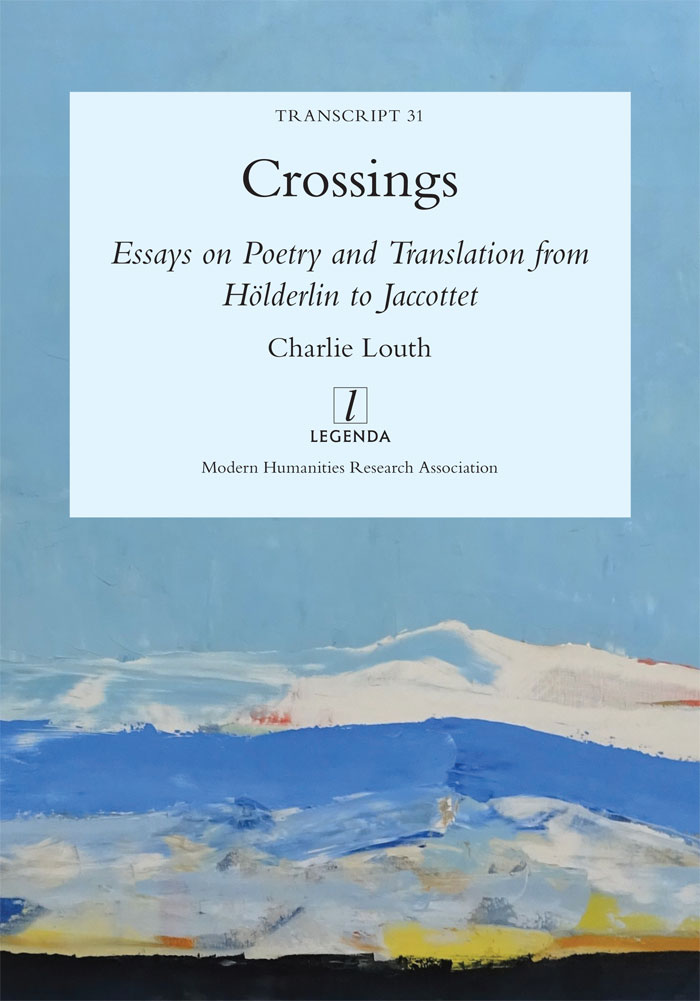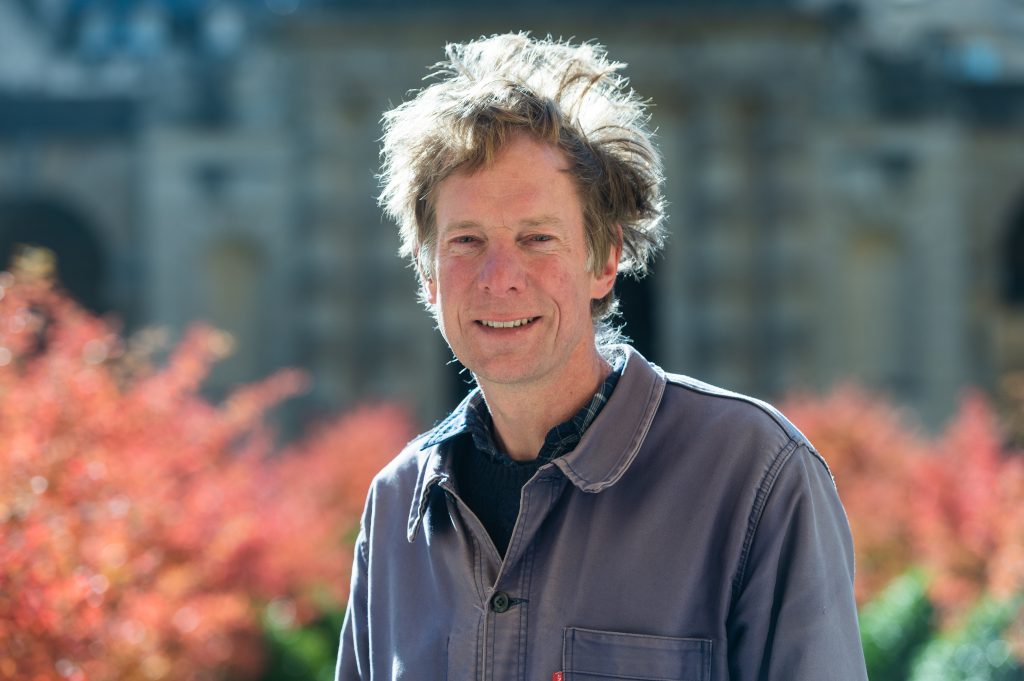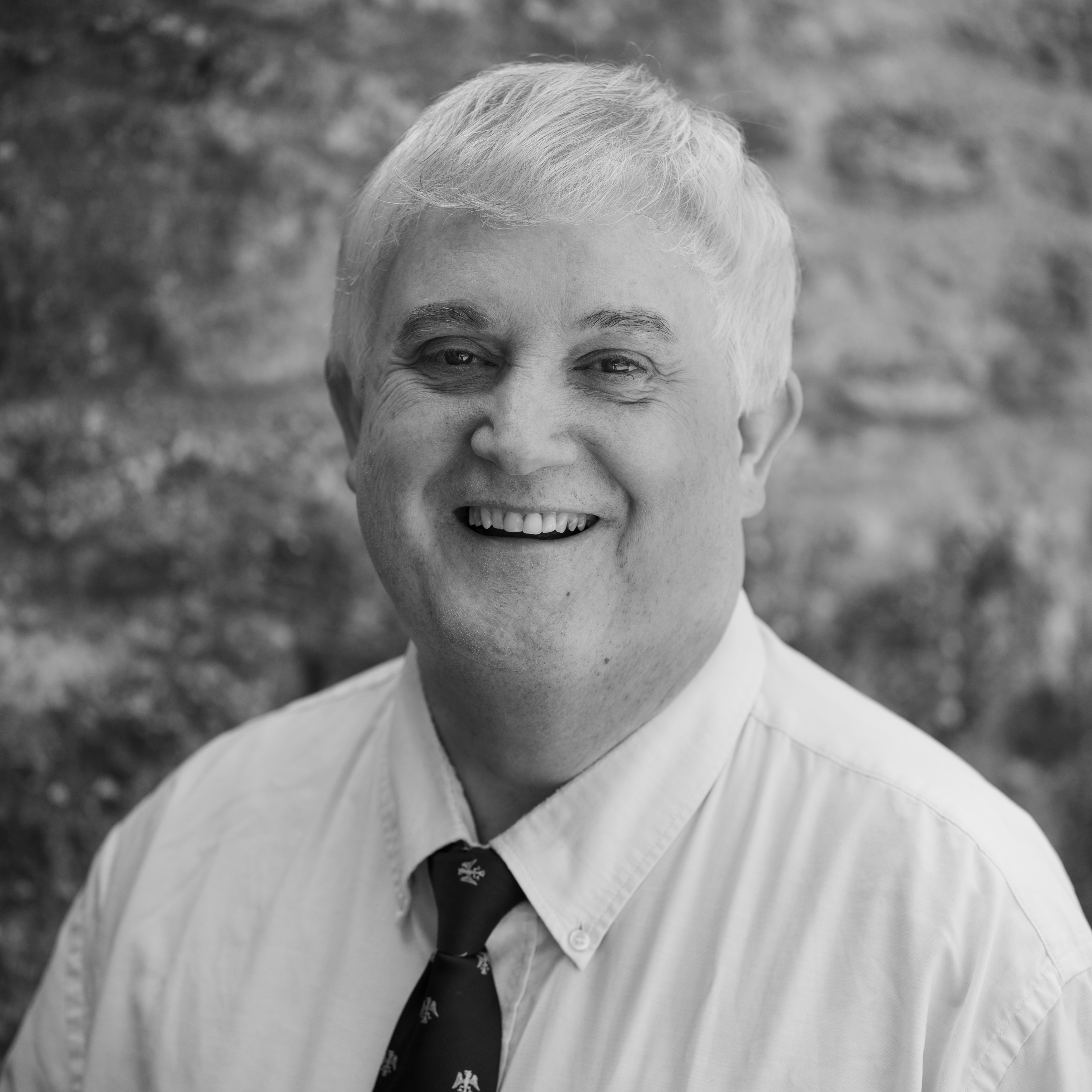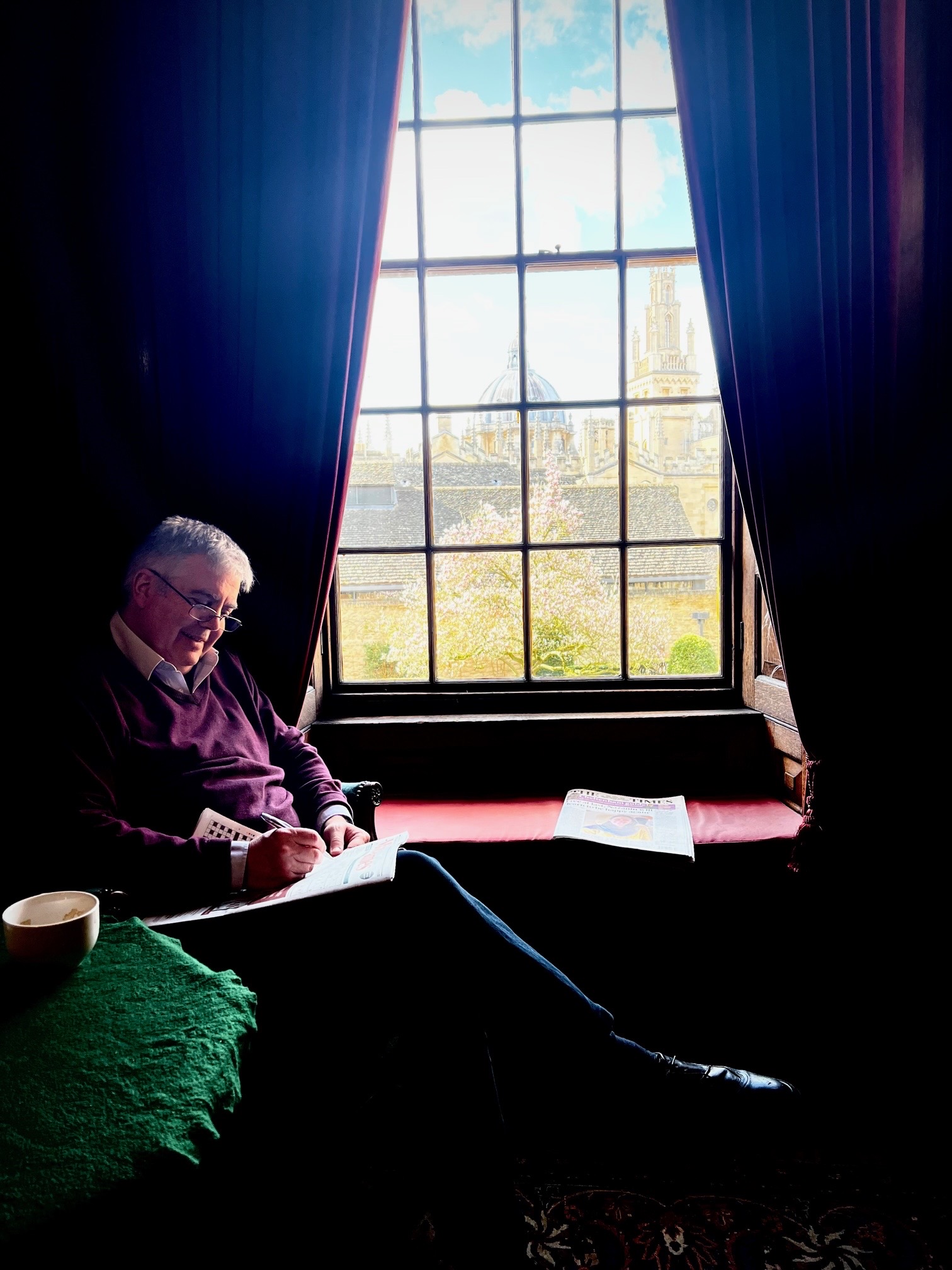Fellow in German Prof Charlie Louth has just published Crossings, which is a gathering of essays whose preoccupations converge in the idea that the workings of poetry and translation are closely related. Here we find out more about what this means and how he brings this idea into his teaching.
Can you give us an example of the connection between poetry and translation that you explore in your new book Crossings and explain a bit about this interrelationship?
Well, I should say that the book was not conceived as a book, it is really just a gathering of most of the essays I have written over the years. But there are common preoccupations, and some of them are clearer to me now than they were before the book was put together. Most of the poets I’m interested in were also translators, for one thing, and their work as translators affected how they wrote and thought about poetry.
Poetry can be thought of as a translation of the world into language. And because poetic language is usually at a bit of an angle to conventional language, working at it to renew its capacity for sense-making, it can resemble the language of translation, which is also often slightly at odds with what we might think of as natural language, though obviously it can’t afford to go too far in that direction.
What is the purpose of poetry for you?
In the blurb I use the phrase ‘forms of attention’ to speak of poems. I think poetry focusses the attention, on the world, on language, and on ourselves. Poems are created by attention, and they create attentiveness in the reader. That’s at least a large part of their purpose. From there many things can flow, but don’t necessarily. But poetry has the capacity to change how we see and feel about the world.
What focus do you put on the role of translation in your teaching?
Translation as a weekly exercise, on which in a sense everything else is built, is fundamental. It’s when we attend most closely to a text, really get to understand how language works, what it can do, how complex the transactions are as we go from one language to another. That awareness then makes us better and better readers, I hope.
Can you recommend a poetry book?
Hard to know where to start! There’s a brilliant haiku I was happy to come across when I was writing the book’s introduction, which seems to me to suggest a lot about poetry and about translation (it’s by Takahama Kyoshi, translated by Old Member Geoffrey Bownas, Literae Humaniores, 1942, and Anthony Thwaite):
The snake fled,
But the eyes that watched
Still in the grass.
But for a book, how about a real poetry-and-translation hybrid, Sophocles’s tragedies, Oedipus the King and Antigone, translated by Hölderlin into German in about 1803, and then further translated into English by my predecessor as Fellow in German at Queen’s, David Constantine, in 2001. Three amazing writers and two of the great works of western literature in one book! Hölderlin had a better and more radical understanding than anyone of what translation could mean and be.




